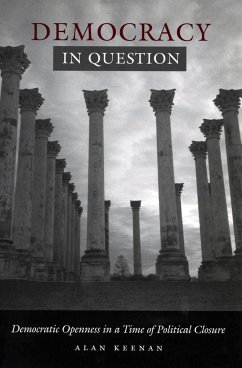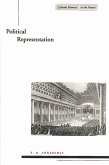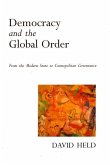"The very features of democracy that make it attractive--its openness, reflexivity, and fluidity--also generates objectionable qualities. Even at its best, democracy generates serial resolutions, each of which brings into existence new closures, manifest in the new and serial 'we's' constituted by democratic procedures. In this fine book, Alan Keenan argues that democrats must understand that these objectionable features are essential to what democracy is. Examining a number of contemporary democratic theories committed to openness and inclusion, Keenan shows how often strategies for grounding democratic openness edge toward closure, and do so while failing to acknowledge the basic risks of democratic experience. What if, Keenan asks, the search for unquestionable grounds for democratic openness turns out to undermine democracy, not because of the substance of the grounds, but because of the nature of the search? Would it be possible to transform the objectionable features of democracy into a source of a democratic ethos? Keenan suggests that the risks of democracy might be affirmed as a shared fate in ways that support openness, providing an ethical complement to more traditional approaches to democratic theory and practice. Whether or not they agree with his solution, it will be hard for democratic theorists to ignore Keenan's powerful formulation of the problem." --Professor Mark E. Warren, Georgetown University "There is a paradox at the heart of the idea of democracy a product of its commitment to freedom combined with its need to found that freedom in a foundation that constrains. Democracy, devoted to freedom, is always, ineluctably implicated in sovereignty, violence and rule. This paradox is ignored or resolved by most democratic theorists, but not by Alan Keenan. In Democracy in Question, Keenan relentlessly tracks the mischief worked by democracyís fundamental paradox in the thinking of Castoriadis, Rousseau, Arendt, Laclau and Mouffe, and Sandel. Keenanís readings of all these thinkers are masterful. On Arendt, in particular, he is brilliant. This book, rigorous, penetrating and clearly written, is no less than a must-read for everyone interested in democratic theory and the politics of freedom and legitimation." --Bonnie Honig, Northwestern University & The American Bar Foundation








